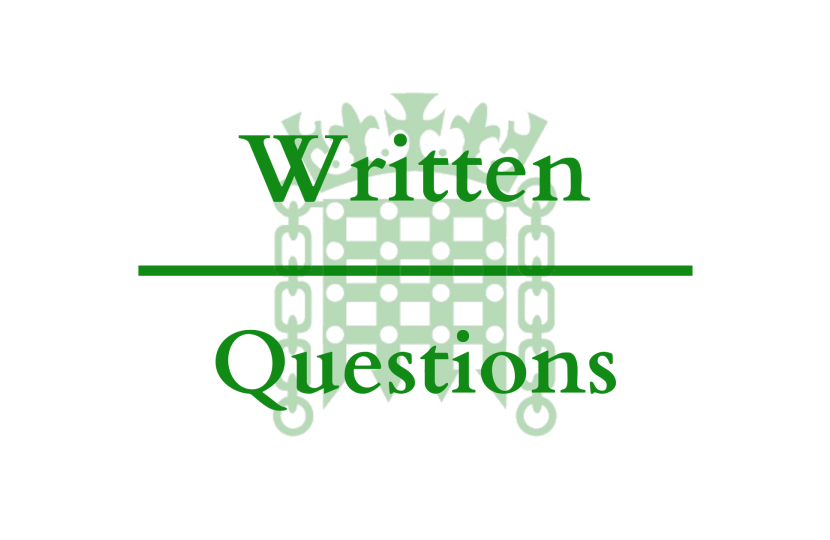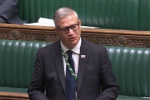
Q: (Andrew Rosindell) To ask the Secretary of State for Foreign, Commonwealth and Development Affairs, what recent representations he has made to the Indian counterpart on the detention of (a) Friar Stan Swamy and (b) other human rights activists in that country.
A: (Nigel Adams Minister of State, Foreign, Commonwealth and Development Office) On 9 October, British High Commission officials in New Delhi highlighted to the Ministry of Home Affairs criticisms of recent amendments to Indian security legislation, including their impact on activists and human rights campaigners in India. The British High Commission will continue to monitor political developments, including human rights. Where we have concerns, we raise them directly with the Government of India, including at ministerial level.
Q: (Andrew Rosindell) To ask the Secretary of State for Foreign, Commonwealth and Development Affairs, what recent discussions he has had with his Ethiopian counterparts on the use of military force against protestors in that country.
A: (James Dudderidge, Parliamentary Under-Secretary, Foreign, Commonwealth and Development Office) I emphasised that space needs to be given for political debate when I met with the President and Deputy Prime Minister in July, during my visit to Ethiopia.
The Foreign Secretary wrote to Prime Minister Abiy and spoke with him on 10 November. In both communications he emphasised the need to protect civilians and allow humanitarian access in the Tigray region, where a conflict is ongoing between federal and regional forces, and other areas affected. He also urged for a de-escalation of violence and called for swift moves to political dialogue. I echoed the importance of protecting human rights in my tweet of 13 November.
Q: (Andrew Rosindell) To ask the Chancellor of the Exchequer, pursuant to the Answer of 9 November 2020 to Question 109655 on Bowling: VAT, for what reasons bowling centres were not included in the reduction in VAT on admissions that was applied to sectors such as cinemas and theme parks.
A: (Jesse Norman, The Financial Secretary to the Treasury) The temporary reduced rate of VAT for hospitality and tourism was introduced on 15 July to support the cash flow and viability of businesses in the hospitality and tourism sectors which have been severely affected by the coronavirus pandemic. Hospitality for the purposes of this relief includes the supply of food and non-alcoholic beverages from restaurants, cafes, pubs and similar establishments for consumption on the premises. It also includes the supply of hot food and non-alcoholic hot beverages to take away.
Where a ten-pin bowling business provides such hospitality, that hospitality will benefit from the reduced rate. In general, admission charges that entitle a person to participate in events where the primary focus is a sporting activity will not be eligible for the reduced rate.
In addition to the reduced VAT rate, the Government has announced a significant support package to help businesses through the winter months, which includes a new Job Support Scheme, an extension to the Self-Employment Income Support Scheme (SEISS) grant, and an extension of the application window for the government-backed loan schemes.
Q: (Andrew Rosindell) To ask the Secretary of State for Health and Social Care, what steps he is taking to ensure the (a) accuracy of covid-19 testing and (b) correct diagnosis of patients with covid-19 symptoms.
A: (Helen Whately, Minister of State, Department of Health and Social Care) The accuracy of National Health Service COVID-19 diagnostic testing is being ensured through our national medical laboratory accreditation programme, overseen by the United Kingdom Accreditation Service. This ensures that new COVID-19 diagnostic tests that are brought into service have their accuracy verified in every laboratory before they are used for patient care.
Their ongoing accuracy is then monitored through programmes of internal and external quality assurance, using reference materials developed by the National Institute for Biological Standards and Control and with oversight from the United Kingdom National External Quality Assessment Service.
Q: (Andrew Rosindell) To ask the Secretary of State for Business, Energy and Industrial Strategy, what assessment his Department has made of the effect of the November 2020 lockdown restrictions in England on florists that sell Christmas Trees in the run up to Christmas.
A: (Paul Scully, Parliamentary Under-Secretary, Department for Business, Energy and Industrial Strategy) The Government recognise that this is a very challenging time for florists, particularly in the peak trading period running up to Christmas.
All shops can continue to offer home delivery and click and collect services to customers during the national restrictions in place from 5 November.
Retailers are able to benefit from additional financial measures recently announced by my Rt. Hon. Friend Mr Chancellor of the Exchequer, including the extension to the Coronavirus Job Retention Scheme, extension to the existing Loan Schemes to January 2021 with the ability to top-up Bounce Back Loans, and cash grants of up to £3,000 per month for businesses which are closed.
Q: (Andrew Rosindell) To ask the Secretary of State for the Home Department, what steps Police Forces are taking to protect the welfare of dogs seized under the Dangerous Dogs Act 1991 given the effect of the covid-19 outbreak on the time taken for court cases to be heard and the extended periods of time in kennels.
A: (Kit Malthouse, The Minister of State, Home Department) Every police force must have a good, robust strategy and policy for dealing with dangerous dogs. The policy must include identifying secure kennels that can be contracted by police should it be necessary for a dangerous dog to be seized prior to any prosecution. The welfare of any dog seized is also a factor the police need to consider, and they should note their duty to ensure the welfare of animals under their control (s9 of the Animal Welfare Act 2006).
Advice and Guidance for enforcers of the dangerous dog law can be found here- https://ukhomeoffice.sharepoint.com/:w:/r/sites/PROC1170/_layouts/15/guestaccess.aspx?e=IUMGpi&share=EWo-7Fafr4RDvYyYsznCEigBnzGLkpB3Vbm_QH8PTu710Q
Q: (Andrew Rosindell) To ask the Secretary of State for Foreign, Commonwealth and Development Affairs, what recent discussions he has had with Cabinet colleagues on the potential merits of imposing further sanctions on (a) individuals and (b) companies that financially support (i) Aleksandr Lukashenko and (ii) his family members.
A: (Wendy Morton, Parliamentary Under-Secretary, Foreign, Commonwealth and Development Office) On 29 September, with Canada, the UK implemented sanctions on Alexander Lukashenko, his son and six other members of the Belarusian senior leadership under the Global Human Rights sanctions regime for serious human rights violations linked to the presidential election in August.?? We welcomed the EU's decision to impose sanctions on other linked officials and will transfer the existing EU Belarus sanctions regime into an autonomous UK sanctions regime at the end of the Transition Period. We remain concerned by the situation in Belarus and will consider future designations carefully, guided by the evidence and objectives of the sanctions regime. It is not appropriate to speculate on future designations.




